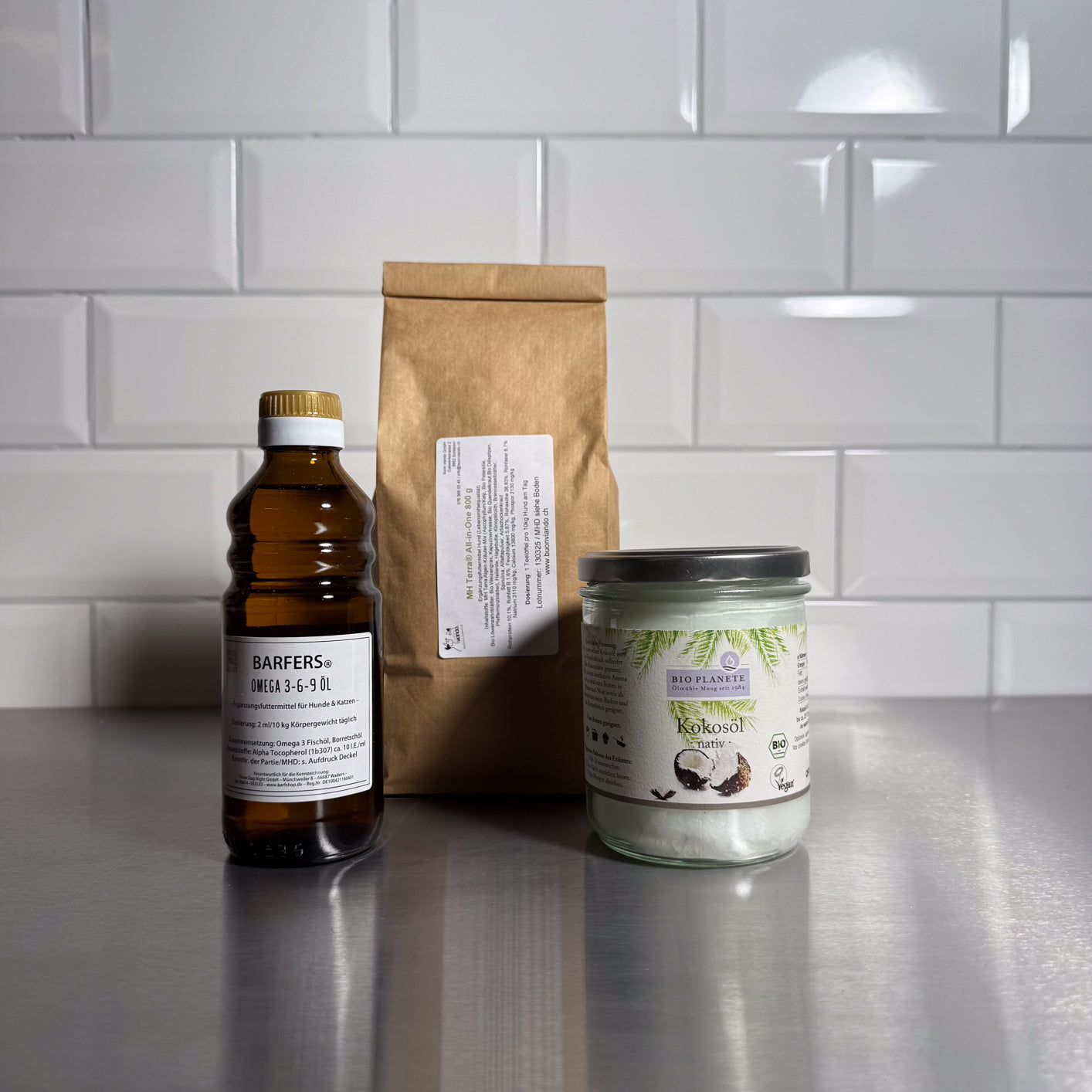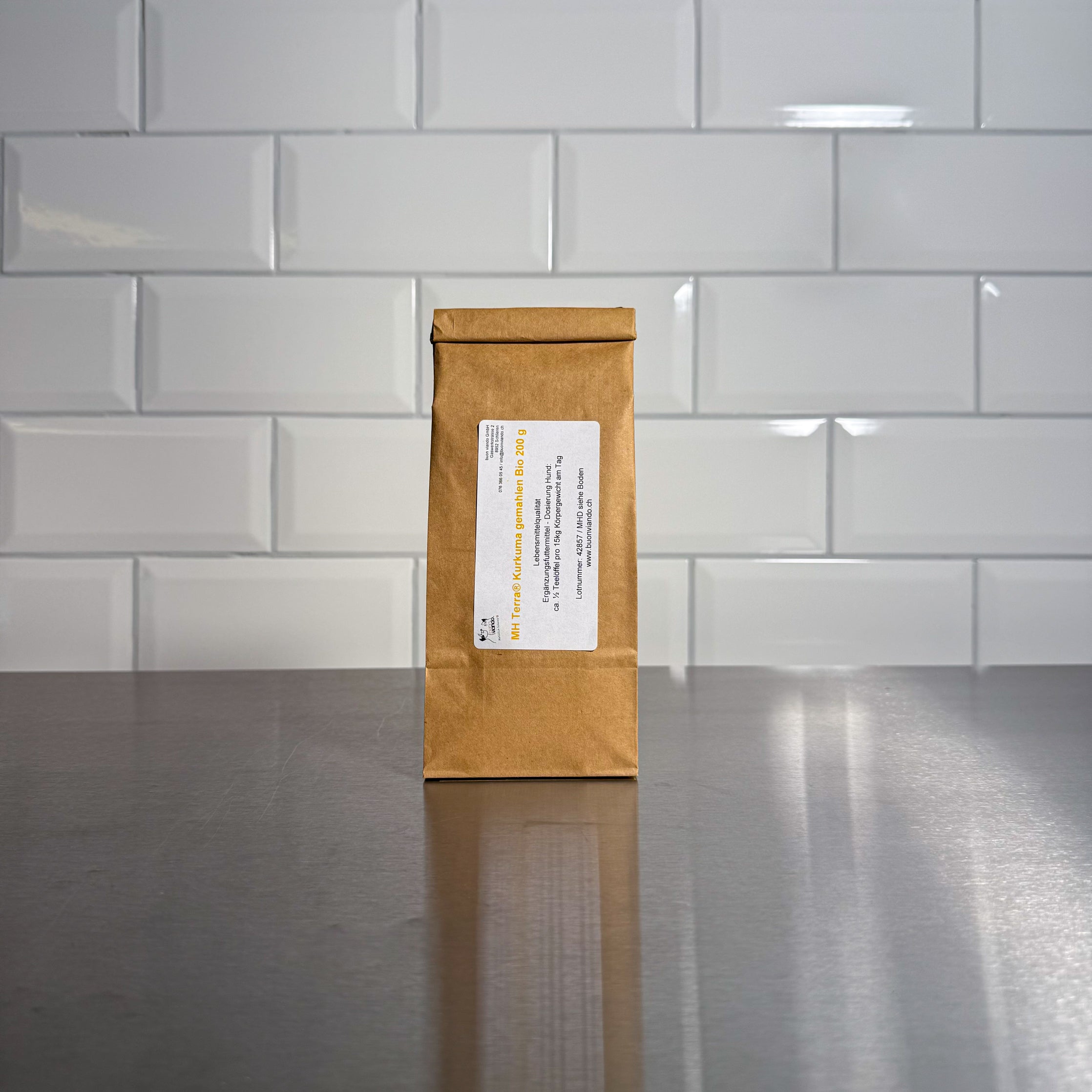What makes turmeric so special?
The root contains, among other things, essential oils, bitter compounds, and, above all, the secondary plant substance curcumin, to which many of its beneficial effects are attributed. Turmeric has been used in naturopathy for centuries – as an anti-inflammatory agent, to support digestion, or as a gentle aid for joint pain.
The Effect in Animals
Turmeric can work on various levels in our animals' bodies:
- Anti-inflammatory & Pain-Relieving
- Antioxidant
- Support for Liver & Gallbladder
- Gentle on Digestion
And how is it tolerated?
Dogs generally tolerate turmeric well – as long as you stick to the recommended dosage. As with all herbal substances, the same applies here: introduce it slowly and pay attention to individual reactions.
The situation is somewhat different for cats: They are significantly more sensitive to herbal substances because their livers do not produce certain detoxification enzymes to the same extent as dogs. Nevertheless, turmeric – in very small amounts and as a treatment – can also be used effectively in cats. However, especially in older or chronically ill animals, it is important to consult a specialist beforehand to determine whether its use is advisable.
In what form should it be administered?
The easiest way is in powder form, for example, mixed into the food or – as in our recipe for Golden Paste – activated in combination with coconut oil and pepper.
Conclusion: A golden helper – used wisely
Turmeric is not a miracle cure, but it is a powerful natural component that we can harness. Whether as support for joint pain, to strengthen the liver, or as a treatment in autumn and spring – with the right amount of judgment, turmeric powder can be a valuable addition to the bowl.












